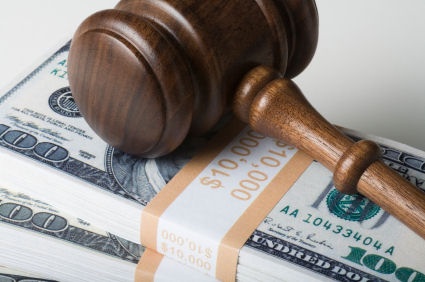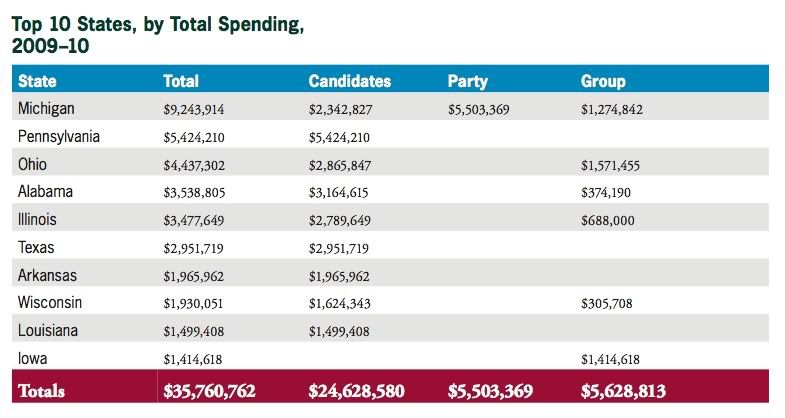Justice for Sale: Record spending floods into judicial campaigns

Following a U.S. Supreme Court ruling upholding Florida's ban on the personal solicitation of campaign contributions by judicial candidates, watchdogs are working to enact such bans in states that don't currently have them.
How much money does it cost to buy a judge? More than ever, according to a new report which finds that spending on state high court elections skyrocketed in 2009-2010, especially from outside interest groups.
The study conducted by several advocacy groups found that non-candidate spending nearly doubled as a share of the total money spent on judicial elections compared to the previous off-year elections (2005-2006).
With nearly 30% of the money flowing through outside interest groups, more of it goes to attack ads funded by secret donors. The study also found that million-dollar races are now the norm in many parts of the country.
Anonymous contributions only add to the already-troubling growth in money in judicial elections, contributions often made by people and groups with a direct stake in judicial decisions. As Bert Brandenburg of Justice at Stake, one of the groups publishing the report, said:
Too many judges owe their jobs to campaign money hidden from public view. Americans expect courts to be fair and impartial. They don’t want campaign cash to influence courtroom decisions.
Alabama, Arkansas, Louisiana and Texas made the top 10 list of states with the most spending on judicial races in the last election cycle. Alabama saw a staggering $3.5 million total spent -- fourth-highest in the country -- despite ranking 23rd in population.
Here's a chart of the biggest-spending states:

The last election cycle also saw intensified efforts to prevent or kill state "clean elections" programs designed to lessen the influence of money in judicial races.
In West Virginia, where in 2003 a coal executive facing litigation famously spent $3 million to elect a judge of his choice, legislators derailed a pilot public financing program for state supreme court campaigns by failing to pass a lawyers' fee that could fund it.
In North Carolina, groups funded by Republican multimillionaire Art Pope led a campaign to repeal the state's popular judicial public financing program (as well as public financing of council of state races).
As elections watchdog Democracy North Carolina has shown, 77% of eligible judges [pdf] have used the program since it started in 2004. This has not only eliminated the perception of influence-peddling, but has also correlated with more women and African-Americans being elected to judicial posts.
North Carolina's well-organized "good government" movement has so far been successful in fending off the attacks on the judicial program, a rare victory, although the legislature may bring the bills back up.
Adam Skaggs of the Brennan Center for Justice summed up the risks:
We expect judges to be impartial and fair. Now with campaign laws weakening, citizens understandably worry that justice is for sale.
Tags
Chris Kromm
Chris Kromm is executive director of the Institute for Southern Studies and publisher of the Institute's online magazine, Facing South.
